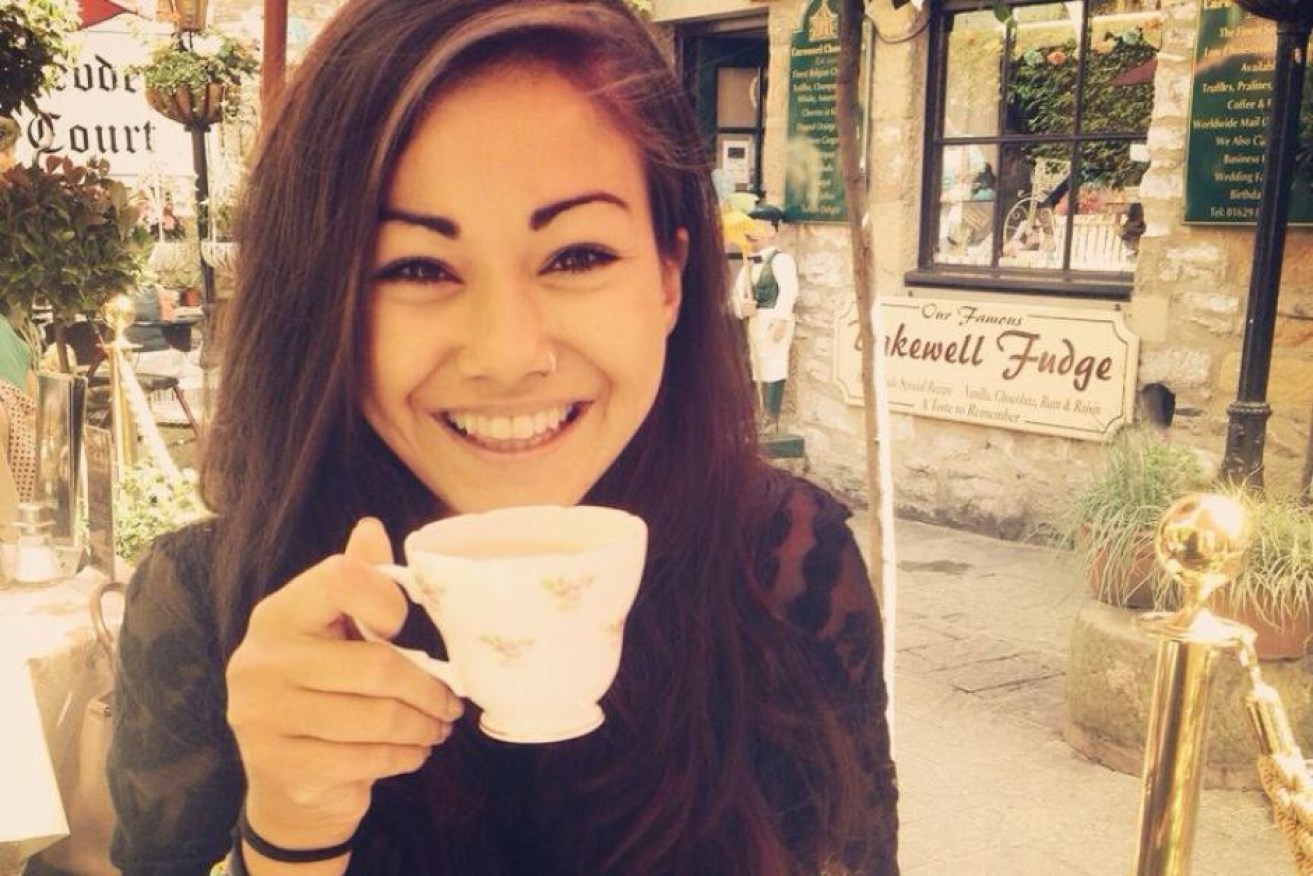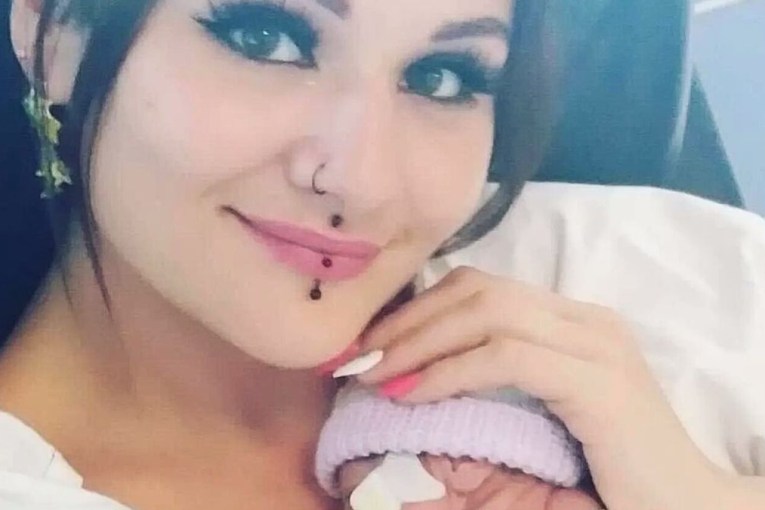Mum of murdered backpacker campaigns for safer farm work scheme

At age 20, Mia Ayliffe-Chung was already well-travelled and loved exploring new places. Photo: Rosie Ayliffe/ABC
“I’m sitting in the cubicle where Mia died and apparently she fought for her life. Even with chest injuries, even after a blow to the heart, Mia was still fighting for her life. And that says it all.”
These are the words of English woman Rosie Ayliffe as she sat in the room of the Home Hill hostel where her daughter, 20-year-old Mia Ayliffe-Chung, was brutally murdered.
It’s almost a year since the tiny Queensland town of Home Hill was catapulted into the headlines.
On August 23, 2016, a 29-year-old French backpacker, Smail Ayad, allegedly went on a violent rampage, claiming the lives of Mia and 30-year-old British traveller Tom Jackson, who had come to her aid.
Mia and Tom travelled to Home Hill to undertake 88 days of farm work in order to secure a second year on their 417 visas.
Fellow Briton Chris Porter had travelled to the north Queensland town with Mia and was sharing a dorm with her and her alleged attacker. He described the drama of that night to Australian Story.
“I think it was around 11:20, I just woke up to screaming and, you know, it just went bang and everything just kind of exploded,” he said.

Rosie Ayliffe and her daughter Mia Ayliffe-Chung shared a love of travel. Photo: Rosie Ayliffe/ABC
A mother’s worst nightmare
Within hours, British police were knocking on Rosie Ayliffe’s door in Cromford, Derbyshire, delivering the news of her daughter’s death. She recalls her disbelief.
“She’d been fatally stabbed. You know I’d only spoken to her that morning. It just came out of nowhere. It’s astonishing, terrifying and devastating,” she said.
Her partner, Stewart Cormack, was there when the police arrived and described the emotional impact on Rosie.
“It is difficult to lose a child in any circumstances but when it’s your only child and you’re a single parent it’s your entire world that’s gone,” he said.
An hour’s drive away, in the small village of Congleton, Les and Sandra Jackson were receiving the news their son had been brutally stabbed after intervening in the attack.
“He’d actually come across the knifeman and he’d gone to the aid of Mia with apparently no thought for his own safety,” Les said.
Les immediately flew to Australia to be by his son’s bedside at the Townsville Hospital. Tom died five days later.
Mia was ‘living her dream’
Before Mia headed to Home Hill to start 88 days of farm work she was living on the Gold Coast and having the time of her life.
A month before she died, she posted on Facebook she was “living my dream”.
A friend of Mia’s, Jesse Tawhi, described Mia’s reluctance to leave the Gold Coast.
“Mia was kind of, ‘Oh my god, I have to go and do this and then I’ll be back soon’. She definitely didn’t want to go,” Jesse said.

Mia Ayliffe-Chung as a young baby.
The 417 visa allows people aged between 18 and 31 from 19 eligible nations to work and holiday in Australia each year.
According to the National Farmers Federation, a quarter of the agricultural work force is made up of backpackers, however other bodies estimate it is even higher.
A decade ago, the 417 visa scheme was expanded with an option for young travellers to extend their stay in Australia to a second year by undertaking 88 days of “specified work” in regional Australia.
In 2013-14, almost 50,000 of the 183,428 417 visa holders elected to undertake farm work to extend their visa.
Hidden world of exploitation and abuse
Rosie Ayliffe knew very little about the farm work scheme when her daughter embarked upon it.
“I assumed it would be a government-run system,” she said.
“I assumed that the young people would be registered and the farms accredited.”
But shortly after Mia’s death, Rosie began to hear stories from distressed travellers.
“There’s a message I received from a backpacker recently who is suffering from sexual harassment from her employer on a regular basis,” Rosie said.
“He walks into her bedroom and asks to have sex with her. She is wondering what to do.”
There were stories of injuries due to lack of training, underpayment or no payment at all and hostels filling their beds on the guarantee of work when no work was available.
She met the Jacksons who told her about Tom’s experience on the 88-day farm work scheme. According to Les, his son was struggling to make ends meet.
“He’d been to a farm in Victoria, did a bit of work, didn’t get any money for it, didn’t get any credit towards his 88 days,” he said.
The Jacksons say Tom travelled to Home Hill in the belief there was work but once there he became ensnared in a debt cycle.
“Over the first few weeks, where he didn’t have any work, he built up a rental debt to the hostel and I guess so that he couldn’t scarper he had his passport confiscated,” Les said.
“I believe he went to the police to see what he could do and they said: ‘We can get your passport back but once we’ve left the premises we can’t do anything’.”
The Jacksons said Tom decided to stay in Home Hill as he had nowhere else to go and just wanted to get the work done, get paid and get his passport back.
He never got his passport back and he never left Home Hill.

Mia Ayliffe-Chung had been living and travelling through Australia for six months before she decided to head to north Queensland in search of farm work. Photo: Facebook
From teacher to campaigner
Rosie is a teacher but following Mia’s death she felt too emotionally frail to front a classroom. Instead she found a new and very real purpose – to tell the world what she had learned about the visa scheme.
“I didn’t think I could turn my back on the situation,” she said. “I felt like I had to use the publicity around Mia and Tom’s deaths to alert people to the fact that they were in danger.”
Rosie wants greater government oversight of the scheme and a register of certified farms and hostels where backpackers can go, confident those places are safe.
She started writing articles, exchanged letters with Prime Minister Malcolm Turnbull and met with the chairman of the Conservative party in Britain, urging them to act.
She also reached out to an old friend, musician Billy Bragg, whom she had known since her teenage years.
During his appearance at this year’s Bluesfest in Byron Bay, Bragg drew the crowd’s attention to the death of Mia and the exploitative aspects of the farm work scheme.
“You really need to start putting pressure on your government to recognise how these young people are being exploited,” he implored.
The renowned singer and songwriter, famous for his social activism, is full of admiration for his old friend.
“She’s seeking to ensure this type of thing doesn’t happen to some other mother’s daughter and you can’t help but be impressed by that and do whatever you can to help her,” he said.
“There just needs to be a campaign of awareness so people know what they’re coming into.
“When you’re a long way from home and you’re with strange people, in a strange land, you need to know there are people out there looking out for you.”
Back to Australian shores
Rosie and Stewart travelled to Australia after Mia’s death to recover her body, and attended a memorial service on the Gold Coast.
Rosie has little recollection of that trip.
“If you ask me how long I was there for, what happened, who I met, I’ve got a vague outline but it’s hazy,” she said.
Rosie visited Australia again in May, embarking on a road trip to investigate the operation of the visa scheme and find out more about her daughter’s death. It was during this trip she made the emotional visit to Home Hill and the room where her daughter died.
Rosie has returned to Australia this week to step up her campaign.
Part one of ‘Long Way from Home’ aired on Monday night on Australian Story, 8pm, and part two screens on Monday July 17 on ABC and ABC iview.








